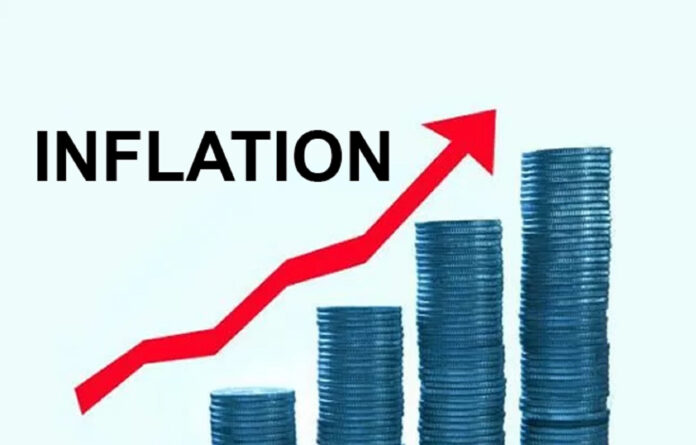By Jeph Ajobaju, Chief Copy Editor
Inflation rate rose to 14.23 per cent (year-on-year) in Nigeria in October, against 13.71 per cent in September, according to the latest report released by the National Bureau of Statistics (NBS).
The October figures highlight increases in 14 months and are the highest since March 2018. Also, on a month-on-month basis, the headline index rose to 1.54 per cent in October or 0.06 percentage points higher than the 1.48 per cent in September.
Food price inflation
Food price index jumped to 17.38 per cent in October over 16.66 per cent in September. Month-on-month, the food sub-index rose to 1.96 per cent in October, up 0.08 percentage points from 1.88 per cent in September.
The major drivers of food inflation were increases in the prices of subheadings such as Bread and cereals, Potatoes, Yam and other tubers, Meat, Fish, Fruits, Vegetable, alcoholic and food beverages and Oils and Fats.
Core inflation
The “All items less farm produce” or Core inflation, which excludes the prices of volatile agricultural produce, stood at 11.14 per cent in October up 0.56 percentage points compared with 10.58 per cent in September, per analysis by Nairametrics.
The highest increases were in the prices of subheadings such as Passenger transport by air, Hospital and Medical services, Passenger transport by road, Pharmaceutical products, Motor cars, Vehicle spare parts, maintenance and repair of personal transport equipment, Hairdressing salons and personal grooming establishments, Miscellaneous services relating to the dwelling, Paramedical services and shoes and other footwear.
Zamfara leads states with highest inflation
Zamfara State recorded the highest rate of inflation October with a 17.69 per cent increase (year-on-year), followed by Sokoto (17 per cent), Ebonyi (16.91 per cent), Bauchi (16.73 per cent), and Plateau (16.69 per cent).
Cross River recorded the least inflation of 11.5 per cent, followed by Abuja (11.84 per cent), Lagos (11.95 per cent), Ondo (12.33 per cent), and Kwara (12.5 per cent).
Edo leads states with high food price inflation
Edo State topped the food price index with 21.65 per cent, followed by Zamfara (20.88 per cent), Kogi (20.58 per cent), Sokoto (20.5 per cent), and Plateau (20.26 per cent).
Ondo recorded the lowest food price inflation (14.23 per cent), followed by Ogun (14.47 per cent), Lagos (14.57 per cent), Bauchi (14.85 per cent), and Gombe (14.88 per cent).
Impact of inflation
Nairametrics notes that rising inflation shows a persistent decrease in the purchasing power of consumers especially at a time when the economy is on the verge of recession, characterised by increases in the price of food items and service fees.
TheNiche has reported how food prices began to rise in April at the onset of coronavirus lockdown when traders complained that policemen demanded bribe from foodstuff truck drivers, although the government exempted such vehicles from restrictions on movement.
Traders said policemen collected bribe from them at checkpoints, and they had to pass the additional cost to consumers.
By April, a 50kg bag of garri, cassava flour – the cheapest and commonest poor man’s food across Nigeria, North and South – doubled in price from N6,000 to N12,000.
“A 50kg bag of Nigerian rice that we used to buy for between N14,000 and N15,000 now costs N21,000,” Peter Ogaa, a trader, told TheNiche at the time.
“The price of a 50kg bag of imported rice has risen from N22,000 to N28,000. A 50kg bag of beans now costs N14,700 instead of N8,500.”
Food prices have been increasing ever since, despite the easing of lockdown on interstate travel.















